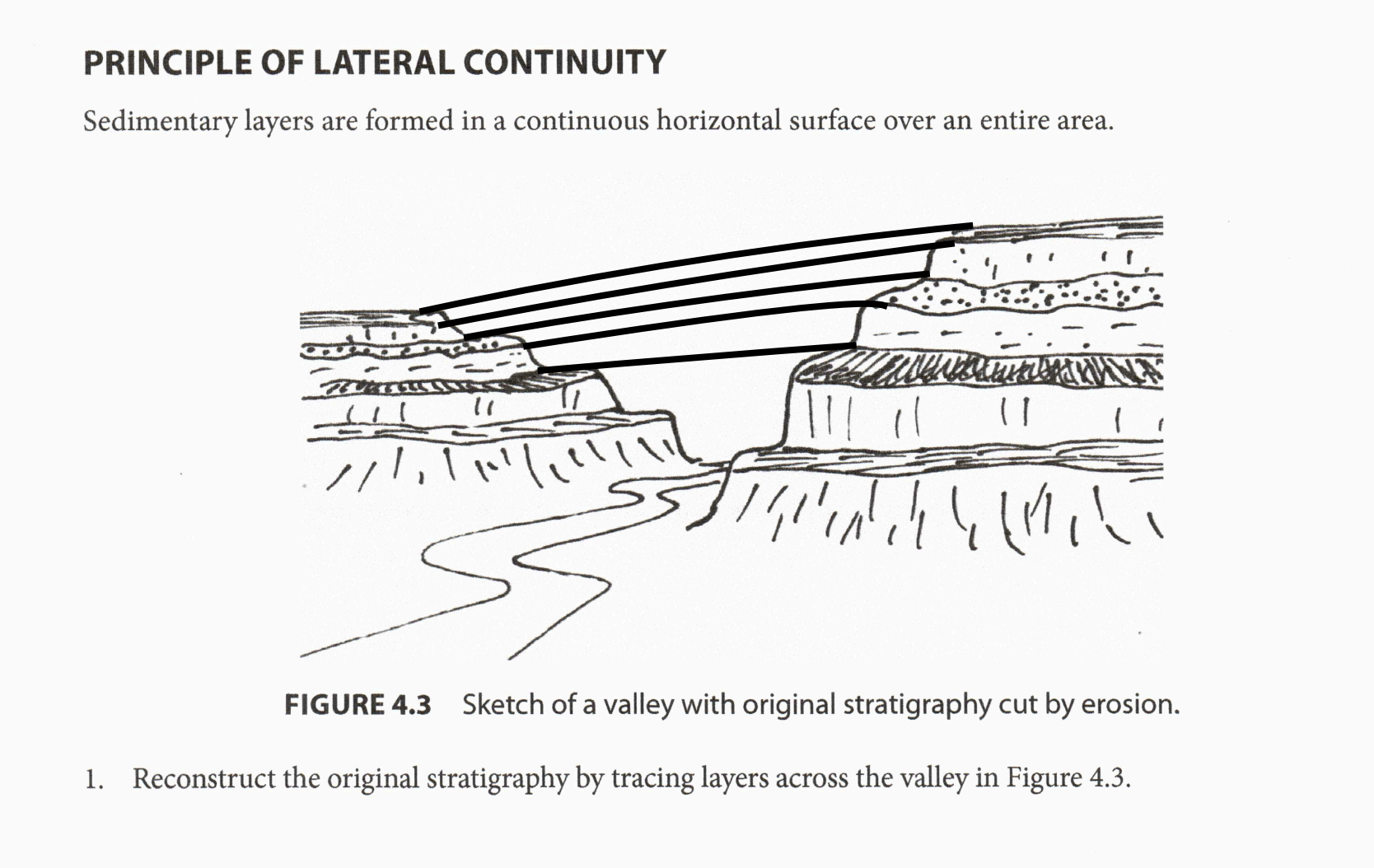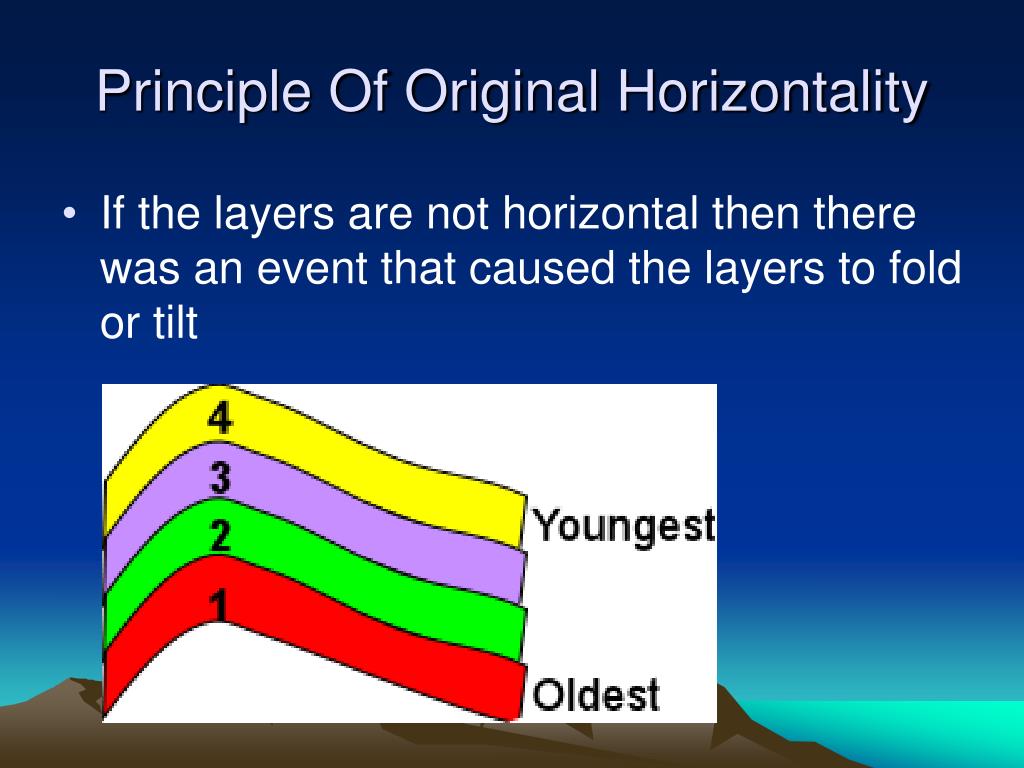Unbelievable Tips About What Is The Principle Of Original Continuity

Continuity Equation And Mass Conservation At Barbara Mcdonnell Blog
Understanding the Principle of Original Continuity
1. What is it all about?
Ever stumbled upon an old comic book, a faded photograph, or maybe even an antique piece of furniture and thought, "Wow, this is still around?" That feeling of connection to the past, that sense that something has persisted through time, is at the heart of the principle of original continuity. It's a concept, primarily used in fiction, especially in comic books and long-running franchises, that dictates how stories acknowledge and respect their own history. Think of it as the memory of a fictional universe.
Simply put, the principle of original continuity means that everything that has happened in a story's past is still considered to have happened, unless explicitly retconned (retroactively changed or ignored). It's the glue that holds a sprawling, decades-long narrative together, preventing it from becoming a chaotic mess of conflicting events and character arcs. It allows writers to build upon established lore, create meaningful callbacks, and explore the consequences of past actions.
Now, imagine a world where writers can just casually rewrite history, change character backstories on a whim, or completely ignore established events. Sounds like a recipe for disaster, right? The principle of original continuity provides a framework for maintaining consistency and coherence, ensuring that readers or viewers aren't constantly left scratching their heads, wondering, "Wait, didn't Superman already defeat that villain ten years ago?"
This continuity is vital because it fosters a deeper connection between the audience and the narrative. It allows us to invest in characters, their journeys, and the world they inhabit, knowing that their experiences matter and have lasting impact. Without it, stories risk feeling disjointed, arbitrary, and ultimately, less engaging. Maintaining this thread can be tricky, especially with many writers and various platforms, but it allows dedicated fans the peace of mind of a stable history.

The Importance of Consistency
2. Its like keeping a good story straight!
Imagine telling a friend a long, involved story, only to contradict yourself halfway through, change key details, or forget crucial plot points. Your friend would probably be confused, frustrated, and maybe even a little annoyed. The same holds true for fictional narratives. Consistency builds trust with the audience. When stories are consistent, audience can rely on what they already know about the characters or the narrative, and fully sink in to the world that is being presented.
Think about your favorite superhero. You know their origin story, their powers, their weaknesses, and their moral code. Now imagine if, in the next issue, they suddenly had a completely different origin, brand new powers, and a penchant for robbing banks. You'd probably feel betrayed, wouldn't you? The principle of original continuity prevents this kind of narrative whiplash, ensuring that characters remain recognizable and believable.
However, the principle of original continuity is not about blindly adhering to every single detail, no matter how minor or inconsequential. It's about maintaining the spirit of the story, the core themes, the essential character arcs, and the overall narrative direction. It's about respecting the established lore while still allowing room for growth, evolution, and creative interpretation. After all, stories need to breathe and evolve to stay fresh and engaging.
This balancing act is no easy feat, its an art form! You have to be able to balance what your audience expects, with the fresh take you may want to bring to the table. If the old story is being followed too precisely, the writing might get stale, but if its not followed at all, you may lose the audience entirely. This is especially important to remember with long running stories, such as TV shows.

The Challenge of Retcons
3. What happens when you mess with time?
Sometimes, despite the best intentions, writers find themselves in a situation where they need to retcon something — to retroactively change or ignore a past event. This can be a tricky business, fraught with potential pitfalls. A poorly executed retcon can alienate fans, undermine the integrity of the story, and create more problems than it solves. It's kind of like trying to fix a broken vase with super glue; sometimes it works, but often you just end up with a messier vase.
However, retcons can also be necessary and even beneficial. Maybe a writer made a mistake early on, introduced a plot hole, or painted themselves into a corner. Or perhaps the story has evolved in unexpected ways, and a past event no longer fits with the overall narrative. In these cases, a retcon can be a valuable tool for correcting errors, streamlining the plot, and enhancing the story's overall coherence. When you have a story running for many years, it can become easy to fall victim to minor plot holes.
The key to a successful retcon is to handle it with care and sensitivity. Explain the reasoning behind the change, minimize the impact on established characters and events, and ensure that the retcon makes sense within the context of the overall story. A good retcon can feel seamless, almost as if it were always part of the story. A bad retcon, on the other hand, can feel jarring, forced, and disrespectful to the audience.
So how do we know when a Retcon has gone bad? A couple things to consider are the story the Retcon is changing. Is this a minor story, or is it a foundational aspect of the narrative? What will the impact on the audience be? If they're happy with the way things are, it may be best to just leave things be, especially if the story still makes logical sense. This can be hard to do as a writer, but sometimes you have to let things be.

Examples in Pop Culture
4. Putting the principle in practice!
The principle of original continuity is all around us in the media we consume daily. Comic books are probably the most obvious example. Both Marvel and DC have been around for decades, and their universes are sprawling tapestries of interconnected stories, characters, and events. The writers and editors at these companies work hard to maintain a sense of continuity, ensuring that the different storylines fit together and that past events are acknowledged (though, of course, they occasionally retcon things when necessary).
Consider the Marvel Cinematic Universe (MCU). While the movies take some liberties with the comic book source material, they generally adhere to the principle of original continuity. The events of previous films are referenced and built upon, characters develop and evolve based on their past experiences, and the overall narrative unfolds in a logical and consistent manner. This has allowed the MCU to build a huge and dedicated following, because fans feel invested in a cohesive and believable world.
Another example can be found in long-running television shows. Think about shows like "Doctor Who" or "The Simpsons." These shows have been on the air for decades, and they've accumulated a vast amount of lore and history. While they sometimes play with continuity for comedic effect or to explore alternate timelines, they generally respect their own past and maintain a consistent tone and style. This is especially true for serialised television shows.
Even video games are in on the action! The Legend of Zelda is a good example. Every game builds on the last, keeping the same characters and basic storyline. However, sometimes there are changes to this continuity! The Zelda timeline is hotly debated to this day because of the changes between games.

The Future of Continuity
5. Where do we go from here?
As storytelling continues to evolve and new mediums emerge, the principle of original continuity will likely become even more important. With the rise of transmedia storytelling — narratives that unfold across multiple platforms and formats — maintaining consistency across different media becomes crucial. Imagine a story that spans a comic book series, a television show, a video game, and a series of podcasts. If the different elements of the story don't align, the audience will quickly become confused and disengaged.
Artificial Intelligence will also begin to play a role in maintaining continuity. As AI technology advances, it will become possible to use AI-powered tools to track and manage complex storylines, identify inconsistencies, and even suggest ways to resolve them. Imagine a tool that can automatically flag potential continuity errors in a script or novel, or even generate new story ideas based on established lore.
Another consideration is the increasing role of fan communities. In the age of social media and online forums, fans have become active participants in the storytelling process, contributing their own theories, interpretations, and even fan fiction. Writers and creators are increasingly engaging with these communities, taking fan feedback into account and even incorporating fan-created content into their stories.
The key to the future of continuity will be finding a balance between respecting the past and embracing the future. It's about honoring the established lore while still allowing room for innovation, creativity, and audience participation. As long as writers, creators, and fans work together to maintain a sense of consistency and coherence, the principle of original continuity will continue to play a vital role in shaping the stories we tell and the worlds we inhabit. It's no simple task, but allows our stories to be the best they can be!

Figure 12.4d Principle Of Original Lateral Continuity Strata (layers
FAQ
6. Frequently Asked Questions
7. What happens when a movie doesn't follow continuity?
It can be frustrating for fans! Often, it leads to criticism and can even affect the movie's reception. Think of it like ordering your favorite coffee, but they forget the sugar — it's just not quite right.
8. Is continuity always necessary?
Not always! Sometimes, stories benefit from being self-contained or exploring alternate timelines. But for long-running franchises, it's generally pretty important to keep things consistent.' Sometimes even the little inconsistencies can become a major pain point!'
9. Can fans influence continuity?
Absolutely! Fan theories can sometimes influence writers and creators, especially in the age of social media. If enough fans express a particular desire or idea, it might just make its way into the official story!'